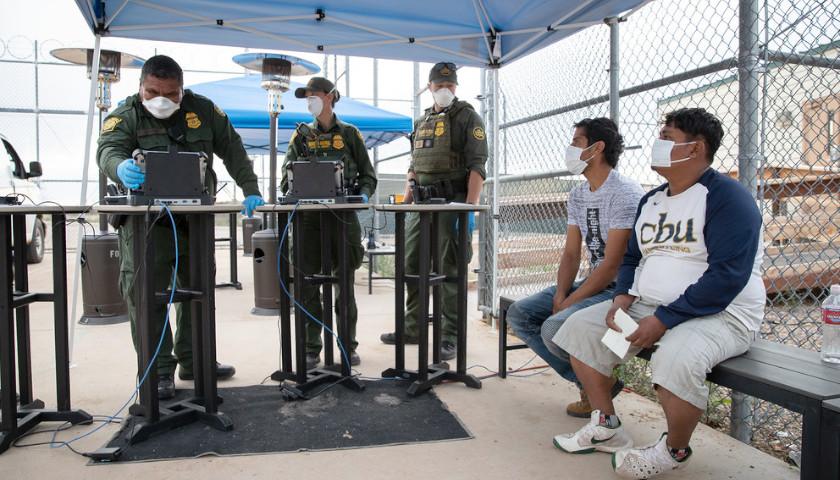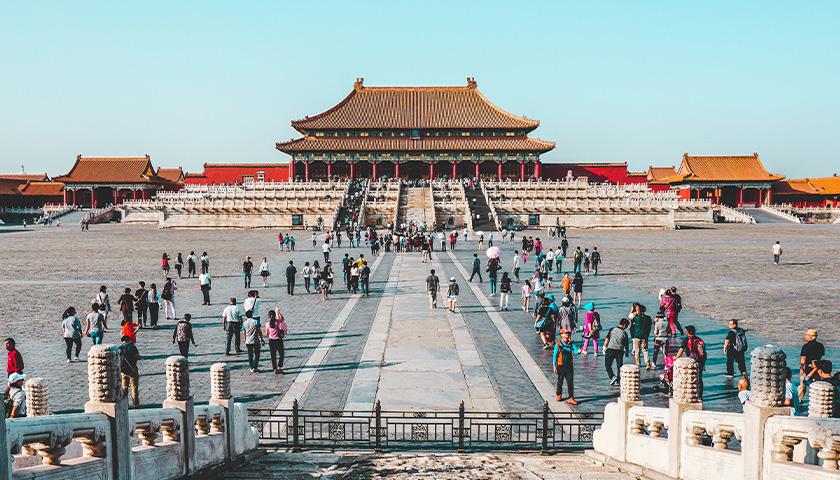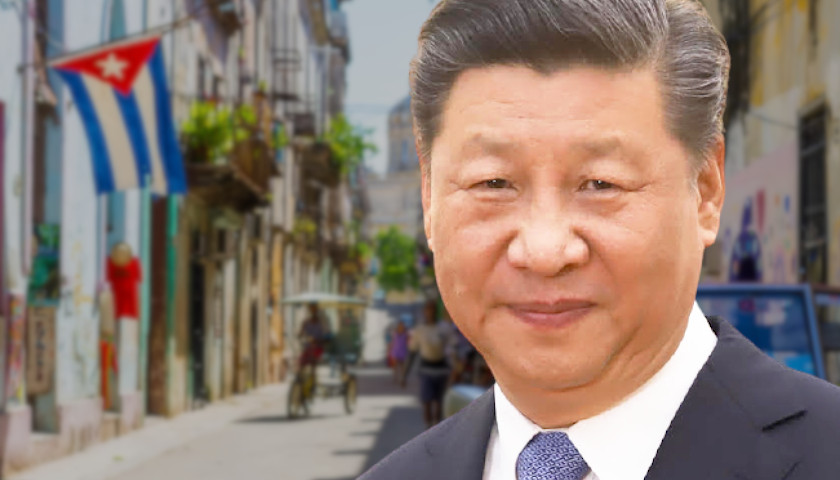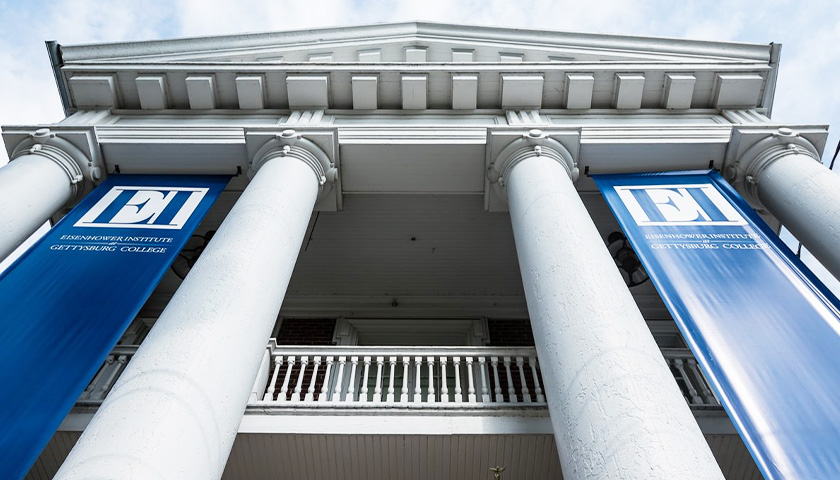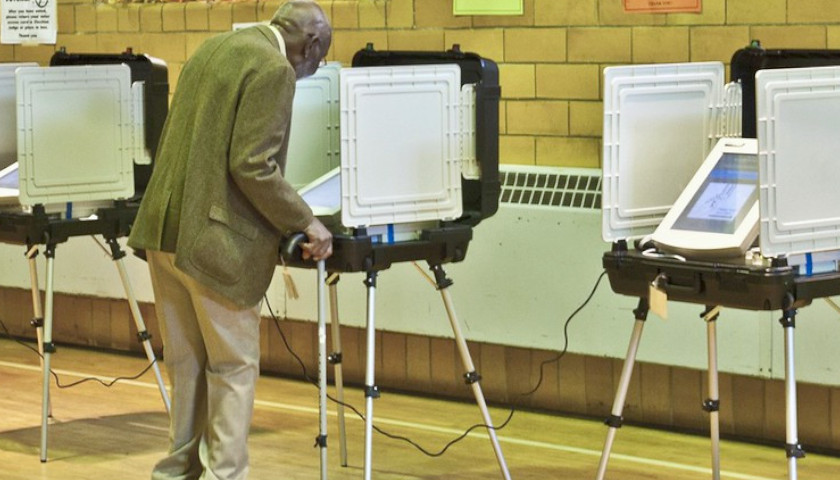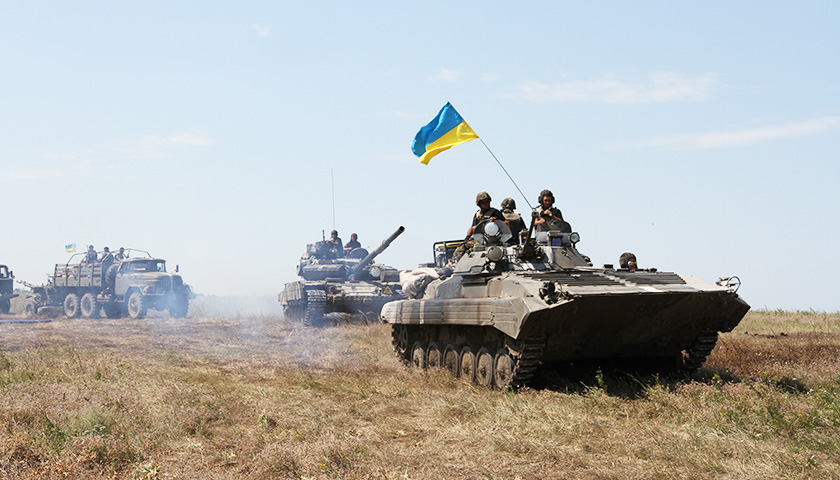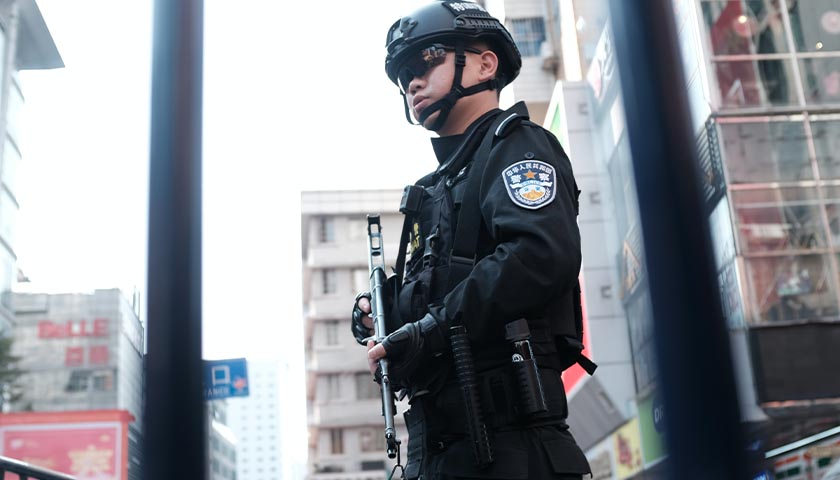After the greatest number of Chinese nationals illegally entered the country under the Biden administration – more than 176,000, creating national security threats – President Joe Biden and his administration announced several actions.
Read MoreTag: PRC
Commentary: America’s Eroding Deterrent in the Face of China Aggression
In March 2015, the former Commander of the U.S. Pacific Fleet, Admiral Harry Harris, while giving a speech in Australia, dismissed the People’s Republic of China’s (PRC) building of seven artificial islands in the South China Sea (SCS) as nothing more than a “Great Wall of Sand” that would not alter the U.S. Navy’s freedom of navigation operations or American deterrence capabilities in the region.
Read MoreChinese Parent of US Battery Maker Has Business Ties with Blacklisted CCP Paramilitary Group
Gotion High-Tech, the Chinese parent company of Gotion Inc., which intends to build electric battery plants in Michigan and Illinois, operates a joint venture in the People’s Republic of China (PRC) that contracts with a U.S.-sanctioned entity, according to a Daily Caller News Foundation review of Chinese-language news reports and business filings.
Read MoreCommentary: What’s the Difference Between the Chinese Government and the Mob?
China’s regime is trafficking illegal drugs, protected wildlife, and humans. It is laundering cash and participating in ransomware attacks. It steals intellectual property. The ruling group, as a matter of state policy, murders people for their organs.
The Chinese state is not only a dangerous international actor, it is also a common criminal. Perhaps we should say it is an uncommon or state criminal, the most powerful and insidious kind.
Read MoreChina Has Operated Spy Facilities in Cuba Since at Least 2019, White House Says
The White House clarified Saturday that China has operated a spy base in Cuba since at least 2019, according to The Wall Street Journal, following reporting that Beijing reached a tentative agreement to set up a new operation somewhere on the island country.
The White House on Friday had characterized as “inaccurate” the WSJ’s first report of a planned Chinese surveillance outpost in Cuba focused on intercepting electronic communications, including emails and radio transmissions, in the southeast U.S. However, White House officials told the outlet Saturday that the Biden administration has worked to tamp down on China’s repeated attempts to spy on the U.S. since Biden took office, and said China has had a surveillance operation in Cuba since at least 2019.
Read MoreChinese Representative Pushes Propaganda at College Campus Event
The Eisenhower Institute at Gettysburg College in Pennsylvania invited a representative of the People’s Republic of China, General Jin Qian, to speak with students and faculty in a private meeting held on Oct. 6.
The purpose of this event was to open a respectful dialogue with the Chinese Deputy Consul General and others about Chinese and United States diplomatic relations and foreign perspectives.
Read MoreProsecutors: U.S. Election Firm Gave Chinese Workers ‘SuperAdministration’ Access to Election Data
A U.S. election technology company currently embroiled in scandal gave Chinese subcontractors high-level security access to American election data, according to a warrant filed by prosecutors this week in Los Angeles.
Authorities earlier this month arrested Eugene Yu, the CEO of the election software company Konnech, on charges of grand theft and embezzlement related to his work with that firm. Controversy has also swirled over Konnech’s alleged storage of poll worker data in servers located in the People’s Republic of China.
Read MoreCommentary: Ignoring the Study of War Is a Recipe for Disaster
Liberal bias in higher education extends to academics’ bias against teaching military history.
There are 299 programs in America that offer the MA and/or PhD in history according to the American Historical Association. But only 37 programs allow for specialization in military topics.
This trend is symptomatic of the left dominating universities. Leftists shun military and traditional political histories for post-modern critique in the discipline.
Read MoreCommentary: Countering China’s Grand Strategy
It has been clear for some time that the People’s Republic of China (PRC) seeks to displace the United States not only as a regional but also as a global hegemonic power. Indeed, we are now in the midst of a new “cold war,” not unlike its predecessor that pitted the United States against the Soviet Union. In the service of its goals, Beijing has pursued a coherent grand strategy. Although China seems to be effectively executing its grand strategy, its success is not foreordained. But countering it must be the strategic priority of the United States.
“Strategy” describes the employment of limited means to achieve the goals of national policy. In general, strategy provides a conceptual link between national ends and scarce resources, both the transformation of those resources into means during peacetime and the application of those means during war.
In the words of Edward Mead Earle:
strategy is the art of controlling and utilizing the resources of a nation—or a coalition of nations—including its armed forces, to the end that its vital interests shall be effectively promoted and secured against enemies, actual, potential, or merely presumed. The highest type of strategy—sometimes called grand strategy—is that which so integrates the policies and armaments of the nation that resort to war is either rendered unnecessary or is undertaken with the maximum chance of victory. (emphasis added)
Read More
